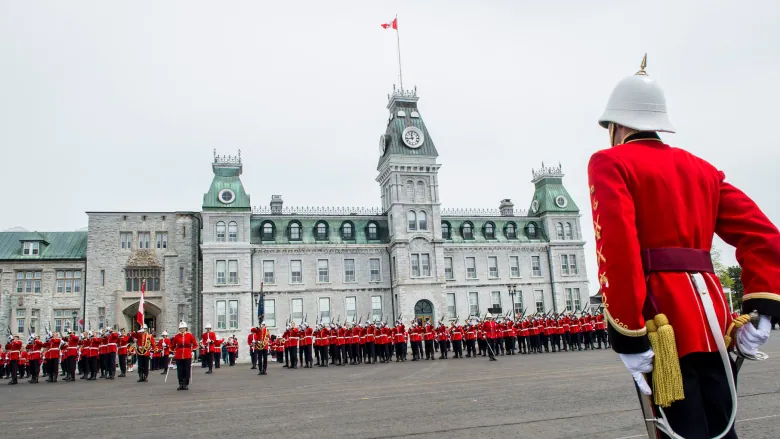Photo: DND
by Ken Pole
The federal government has announced a sweeping ground-level response to the challenge of sexual assault in the Canadian Armed Forces (CAF) – at Canada’s two military colleges where Defence Minister Anita Anand says there is a “well-documented” problem.
“Things can change, they must change, and they will change,” Anand said in the foreword to a long-awaited report on “cultural change reforms” she tabled on Dec. 13 in the House of Commons. “It is our most basic responsibility, our most important task, and my absolute priority.”
A workplace free from harassment and discrimination for civilian as well as uniformed personnel is essential to national security, she said, adding that “if we cannot protect our members, we cannot expect that they will be willing to join and will be able to protect us.”
That change is to begin at the colleges in Kingston, Ontario, and St-Jean-sur-Richelieu, Quebec, where cadets effectively begin the process that grooms many for future command. Anand said the perception of both as “institutions from a different era with an outdated and problematic leadership model” had to change, a process beginning with the appointment of an “education specialist” to evaluate the situation.
The minister’s report is the government’s response to a scathing assessment of the CAF’s record by Louise Arbour, a former Supreme Court of Canada judge and chief prosecutor for high-profile International Criminal Court cases. Arbour spent a year reviewing policies, procedures, programs, practices and culture within not only the CAF but also the Department of National Defence. She examined recruitment, training, performance evaluation, posting and promotion systems, as well as the military justice system and how DND had responded to recommendations by former Supreme Court Justice Marie Deschamps in 2015.
A Canadian- and Oxford-educated lawyer, Anand had been in the Defence portfolio for little more than a week on Nov. 4, 2021, when she accepted an interim recommendation by Arbour that investigation and prosecution of Criminal Code sexual offences should be taken out of the military justice system.
The RCMP and several municipal police forces have since begun handling alleged criminal offences “of a sexual nature” referred to them by Military Police on a case-by-case basis in what the report describes as “a deliberate, victim-centric, and trauma-informed approach.”
Fifty-seven military investigations have been transferred so far this year but another 40 have been declined for unspecified jurisdictional reasons and concerns about the costs of staffing for police and the courts.
Anand has already accepted all of Arbour’s 48 recommendations, many of which are technical or legislative in nature and are expected to require more time to put into effect. However, she committed to implementing 17 almost immediately on receiving them 13 months ago and ordered an “all-hands-on-deck” approach.
That included the appointment last Oct. 24 of Jocelyn Therrien, formerly with the Office of the Auditor General, as an “external monitor.” Therrien had participate in an OAG review of four cases of workplace harassment within the RCMP, a role the government suggested gives her a valuable insight into what lies ahead for Canada’s military culture.
Anand said in her foreword to Dec. 13 report that “countless stories of victims and survivors” in the military over the years have been “heartbreaking, and far too common.” Even so, visits to CAF bases across the country gave her “reason for hope” because she is convinced that all ranks are “open to reform and are willing to help bring it about.”

